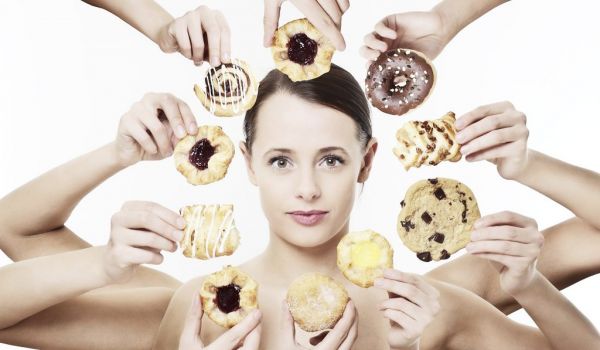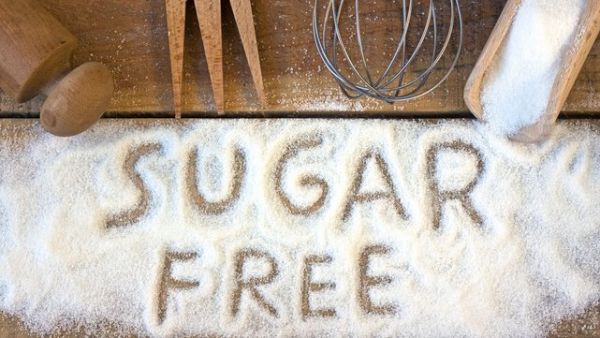Sugar, Sugar, Sugar! This sweet crystalline substance, consisting essentially of sucrose, has become a large part of the modern diet. Research shows that sugar is addictive, stimulating the same pleasure centres (dopamine) of the brain as cocaine or heroin. Society today has lost control over their consumption of sugar, allowing processed foods (a.k.a junk food) to change our brain chemistry making us crave more and ultimately buy and eat more.
Are you addicted to sugar? Do you search for something sugary throughout the day? Do you find it difficult to stop eating sugar once you have started? Do you crave sugar? If you answered yes to any of these questions you may want to start cutting back on the amount of sugar you consume in a day.

Eating high amounts of refined carbohydrate and/or sugar can give us a false sense of comfort by altering our mood. The reason why sugar makes us feel good, is it moves more of the amino acid tryptophan across our blood brain barrier. The amino acid gets converted to serotonin in our brain (which is the feel-good neurotransmitter). The problem with doing this, long-term, is that our cells become insulin resistant and we need more and more sugar to get the same effects. The more sugar we eat also increases the amount of inflammation in our brain.
Our brains see sugar as a reward and the more sugar you eat; the more you are rewarding yourself making it harder to kick the habit. Unfortunately, this bad habit begins from childhood as sugar is often used as a reward. “If you eat your broccoli I will give you a lollipop”, “if you do your homework, I will give you a piece of candy” these are just some examples of how sugar is used as a reward. Although many of us see a little candy here and there as harmless, the issue truly lies in the subliminal message that we are giving our children. Children begin to associate the feeling of ‘happy’ and “accomplishment” with sugar resulting in long-term effects. Understanding what your triggers are for craving sugar will allow for you to break the habit. Do you reach for something sweet when you feel happy, accomplished, excited, stressed or a need to self-soothe? Not having a treat ever is unrealistic however making it from scratch and using natural ingredients and natural forms of sugar is key. What is also important is to break the connection between sugar and providing a reward to yourself, simply look at the treat as something you are going to enjoy with no harm.
Many of us think a little sugar here and there is harmless but the amount we consume on a daily and weekly basis can creep up on us without realizing. Processed sugar (table sugar, soda, candy, etc.) is also referred to as a simple carbohydrate. After entering into your body it floods your bloodstream with glucose in a short period of time, causing a drastic sugar spike (this is where the term “crash” comes in). This puts tremendous stress on the body, particularly the pancreas. Your body converts blood glucose to energy through the hormone insulin. The function of the pancreas is to create and release insulin into the blood to process the glucose. Consuming sugar frequently will have long-term effects on the pancreas inevitably causing pancreatic failure (a.k.a diabetes).
What does sugar-free mean? It is a lifestyle free of refined sugar (such as processed foods, white flours, cakes, candies, etc.). be aware when products say “sugar-free” or “diet” it simply means that chemicals have been added to replace the actual sugar. Moving towards a sugar-free lifestyle should be exciting and filled with tons of fruits and vegetables and lots of colour to keep you wanting more! Consult a Nutritionist if you find you need more direction on what foods to stay away from and what types of foods and meals to incorporate.

Steps on how to start a sugar-free lifestyle
- Cleanse: Clean out your fridge and cupboards of all processed sugar
- Fill your fridge with whole foods
- Incorporate fat and protein with each meal
- Have a nutrient dense breakfast to start off your day with high energy!
- Add sweet spices like cinnamon, cardamon, anise, etc.
- Eat regularly to keep your blood sugar levels balanced (no spikes)
- Move your body
